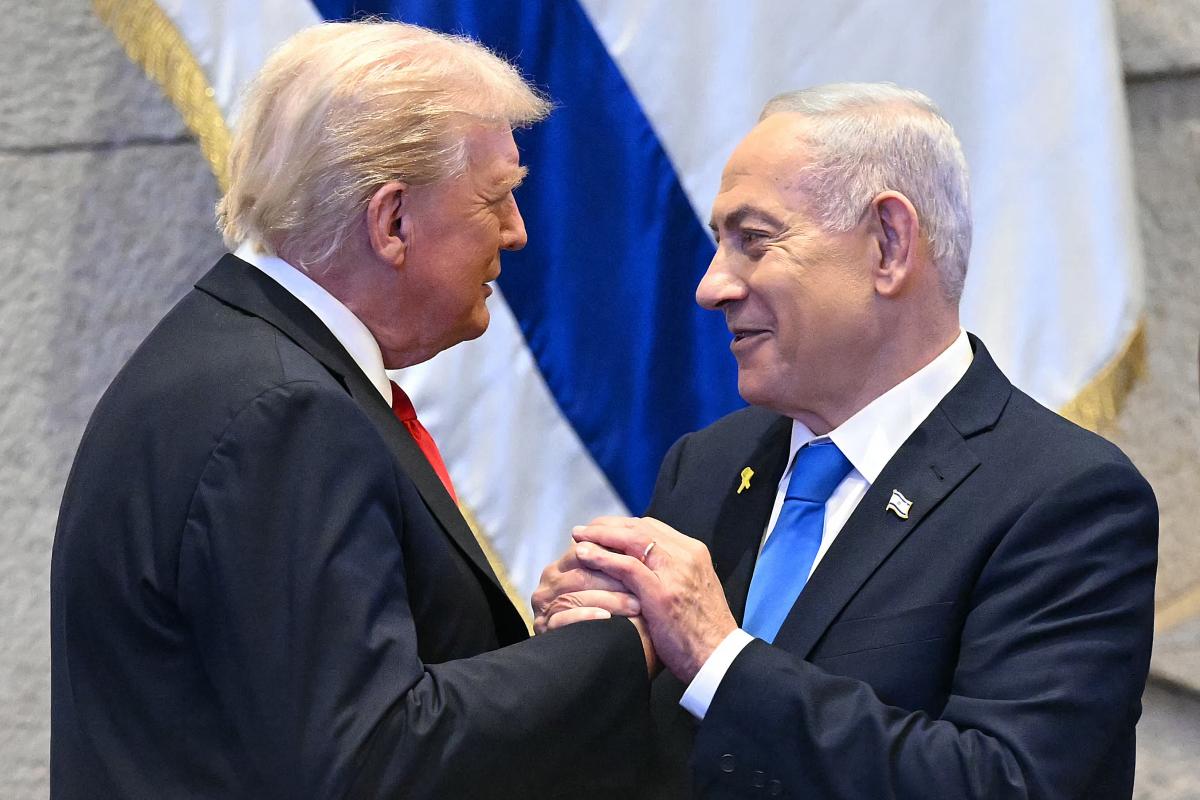Although U.S. President Donald Trump’s intervention was decisive in ending the war in Gaza and saving the lives of Israeli hostages, it also served as a moral lifeline for Israeli Prime Minister Benjamin Netanyahu. Yet this salvation will not come without a price for “Bibi.”
Netanyahu emerged from his recent battles with some strategic gains — even his rivals acknowledge that — following two turbulent years of confrontations on seven fronts, including a diplomatic clash with Qatar. Israel also fought parallel battles in the media, cyberspace, social networks, universities, courtrooms, and at the United Nations.
Still, Netanyahu has not been able to erase the stain of October, a shame that clings to him regardless of how long he prolongs his wars in the hope of surviving until the next internal elections. He refused to step down even after other top officials who held office during the “Al-Aqsa Flood” operation resigned. Netanyahu continues to defy the governmental judicial inquiry despite growing public pressure demanding accountability.
The prime minister has found himself increasingly isolated politically, losing key allies — even within his own office — while Jewish communities worldwide also face growing alienation due to his actions and disregard for global outrage over the massacres in Gaza. This isolation is evident across academia, the arts, and sports, affecting even Israel’s legitimacy within the United States — in areas once considered untouchable, such as defense cooperation.
Netanyahu is fully aware of the scale of the challenge he faces in regaining power as Israel’s longest-serving leader. He confronts political challenges to reunify a divided nation, economic ones to rebuild the state, and military ones to prepare for potential future wars — not to mention personal challenges to free himself from ongoing legal cases.
For all these reasons, Netanyahu now desperately needs Trump, who publicly called during his October 13 address to the Knesset for Israel to drop all pending legal cases against the prime minister.
At this crucial juncture in his political career, Netanyahu looks to Trump for strong support, especially as he braces for an onslaught of attacks from his rivals over Gaza — a war that Hamas can claim as a political, if not military, victory.
Once Netanyahu realized Trump’s determination, he began making a series of dramatic concessions under mounting pressure: agreeing to end the war, accepting ambiguous clauses in the truce deal, and showing restraint toward Hamas, including halting airstrikes despite accusations of ceasefire violations.
Still, Netanyahu attempted to breach the Gaza agreement before being reprimanded by senior U.S. officials, some of whom rushed to Israel to monitor the ceasefire firsthand — their presence turning Israeli facilities into de facto American-controlled zones.
These developments have fueled growing questions — and political campaigns, especially within Israel’s right wing — about whether Israel has fallen under U.S. “guardianship” or even become, as critics say, a “client state” of America.
The controversy intensified as Netanyahu praised Trump effusively, accepted his political and humanitarian conditions tied to U.S. aid, and tolerated Washington’s leniency toward Hamas in matters such as the return of bodies or ceasefire enforcement. Trump even accepted Hamas’s control over Gaza as part of his vision for maintaining order.
American officials have since monitored even the smallest details to prevent the collapse of the truce that bears Trump’s signature — an accord central to his broader plan for Middle East peace.
Distancing from the West Bank Annexation
Meanwhile, and without the backing of Netanyahu or his Likud Party, the Israeli Knesset has approved the first stage of legislation to impose Israeli sovereignty over the occupied West Bank — a move toward formal annexation.
This was only the preliminary vote, the first of four required steps before the bill becomes law. It would effectively apply Israeli civil law to the West Bank, making all its areas part of Israel and stripping the Palestinian Authority of its remaining powers. Such a move would crush any prospect of a two-state solution or an independent Palestinian state, especially as annexation would allow further expansion of Israeli settlements.
Although implementation of the measure remains unlikely in the near term, it would worsen conditions for Palestinians, who would not gain citizenship rights but would instead fall under Israeli law rather than Palestinian or international jurisdiction.
Washington’s rejection of the preliminary Knesset vote came amid heightened pressure on Israel — a clear example of what the Israeli right, including National Security Minister Itamar Ben Gvir, has denounced as “American guardianship.”
Trump, however, was explicit: Israel “will lose all U.S. support if it proceeds with annexation.” His vice president, J.D. Vance went further, calling the vote “a foolish political stunt,” adding that he found it “somewhat insulting.”
It has become evident to Israelis that American pressure has reached a level of outright coercion, with U.S. officials now attending political and military meetings to ensure that all decisions align with Trump’s wishes.
Netanyahu’s dilemma is deepening as Israel enters the second phase of the Gaza agreement — the stage of implementation — when it will become clear that the government’s version of the deal presented to the public differs from the reality on the ground. Each clause could spark new disputes requiring additional agreements.
All of this stems from Netanyahu’s own unilateral and self-preserving policies, driven by his obsession with avoiding prosecution. His endless wars have left him weakened before Washington, the international community, and his own people.
This has led his opponents to portray the situation as one where the United States is forcing Israel to take measures against its national interests — going beyond normal great-power pressure to something resembling control.
Yet, for Netanyahu’s critics at home, turning Israel into what they call a “banana republic” may not trouble the wider public as much as they expect. Many Israelis opposed to Netanyahu believe his submission will not save him politically, and that it will instead become part of a long-term U.S. strategic framework — one embedded in Trump’s broader regional vision for peace, which ultimately guarantees Israel’s privileged place in the region.
Please post your comments on:
[email protected]
 Politics
Politics













